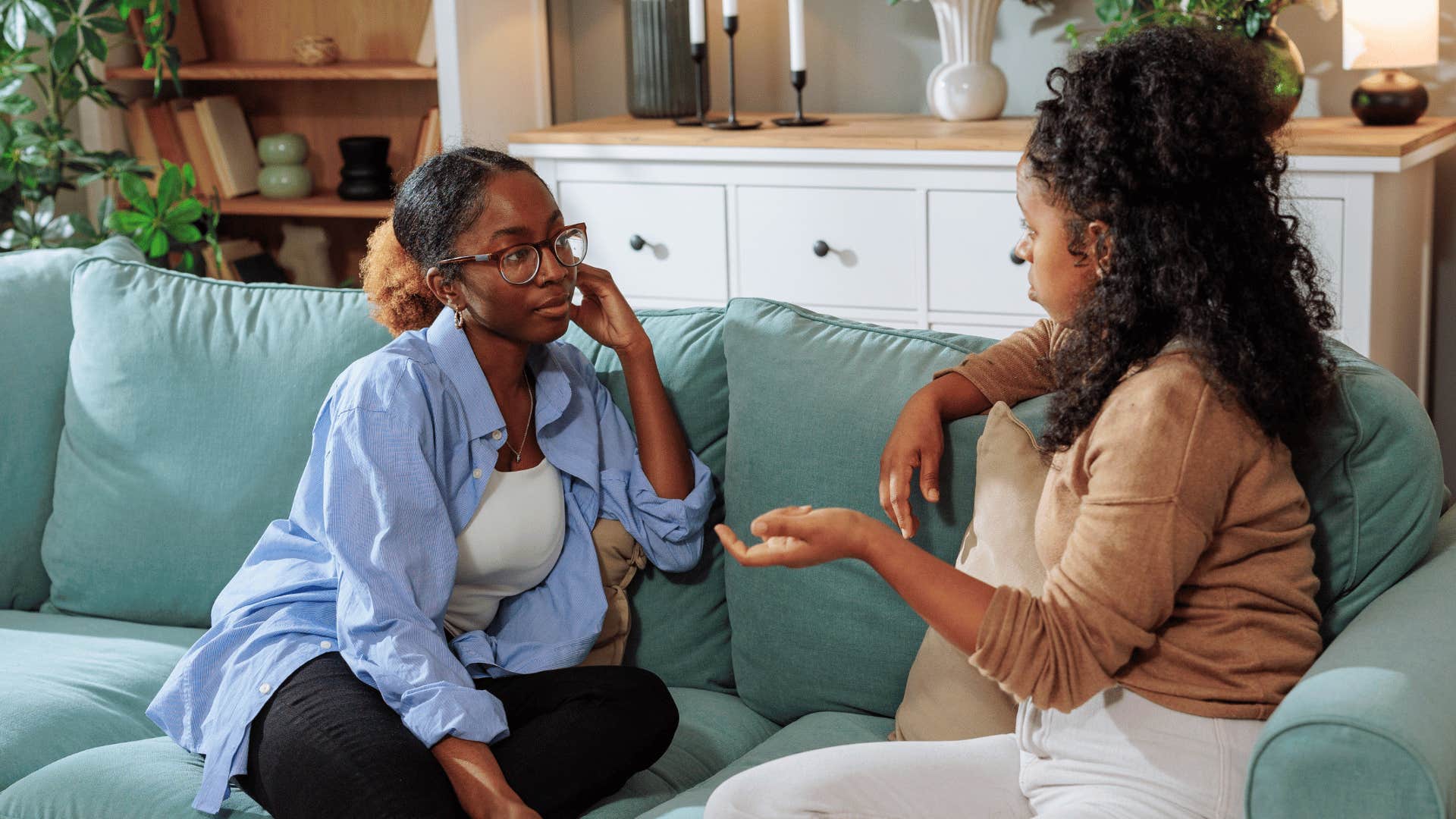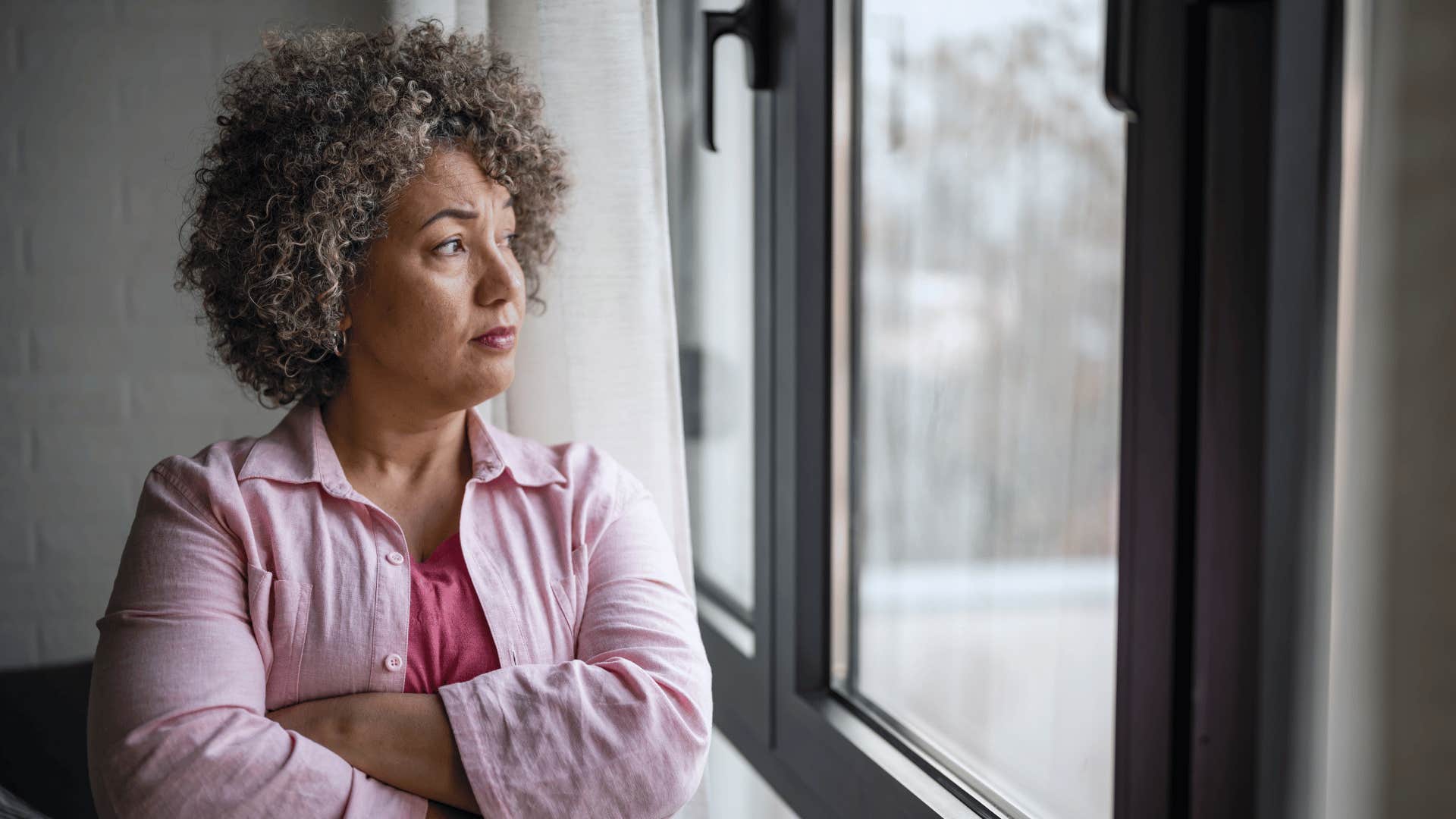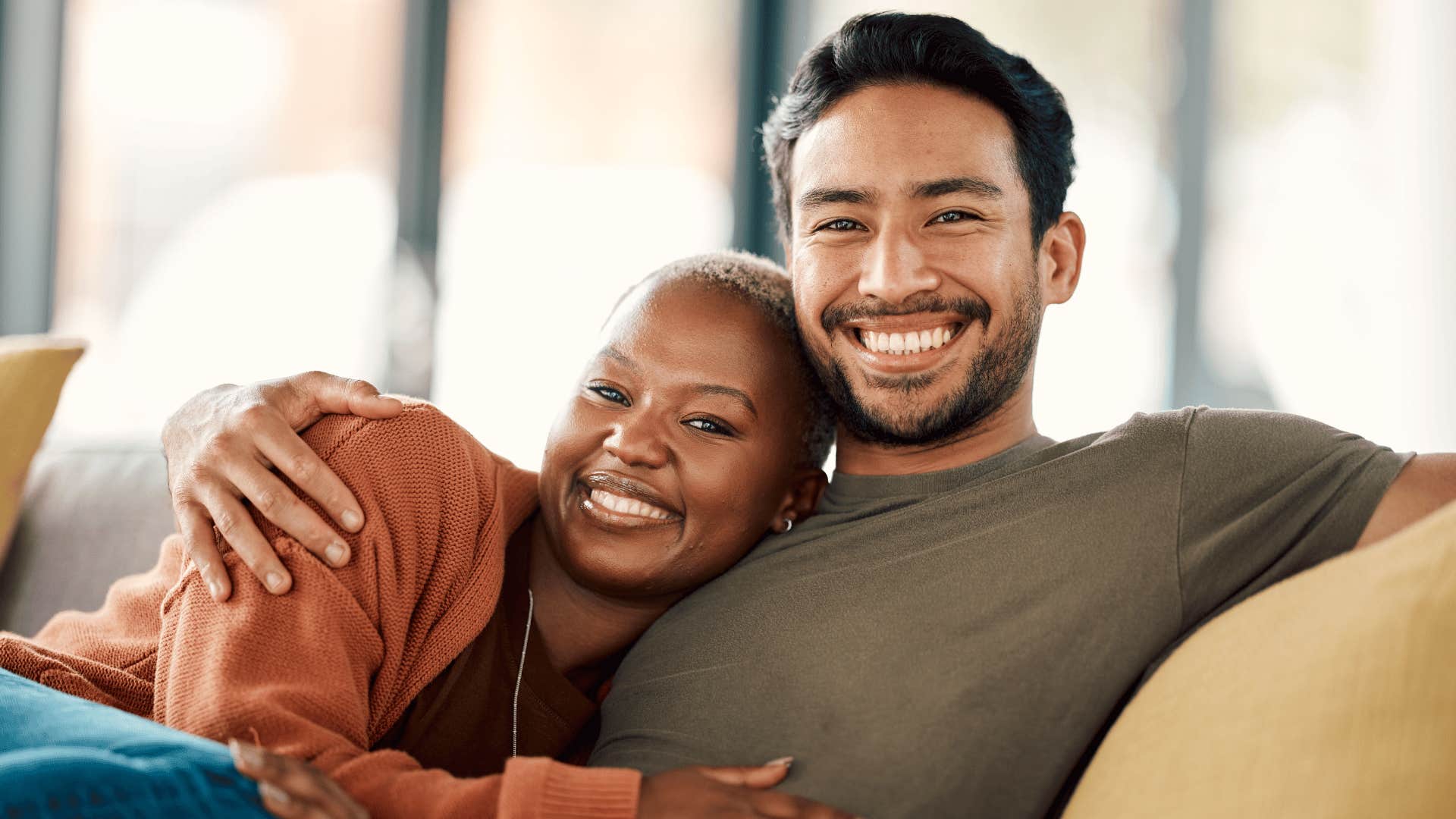11 Signs You’re More Self-Aware Than An Average Person
We all have our strengths and weaknesses. It's how well you recognize them and what you do about them that makes the difference.
 nikkimeel / Shutterstock
nikkimeel / Shutterstock Cultivating self-awareness isn’t always an easy process, but being highly self-aware makes the quality of anyone’s life better. Being able to look at yourself and reflect on your actions, emotions, wants, and needs requires a healthy observing ego, which comes from paying attention to your inner world. The more you stay attuned to yourself, the more you’ll notice that there are clear signs you’re more self-aware than an average person.
According to Jonice Webb, PhD, there are three main areas of self-awareness: physical, relational, and emotional. Being physically self-aware means you know your body’s cues and you act on them, like letting yourself rest when you’re tired, eating in a well-balanced way, and moving your body in a way that gives you energy and feels restorative. Relational self awareness helps you understand how your habits and personal qualities affect your interactions with other people. Having emotional self-awareness means noticing, identifying, and processing your feelings.
Here are 11 signs you’re more self-aware than an average person
1. You can name how you feel
 fizkes | Shutterstock
fizkes | Shutterstock
Being able to label your feelings is a sign you’re more self-aware than an average person. Being able to name how you feel is less of an intellectual exercise and much more about listening to yourself carefully and voicing your emotions in simple, direct language.
As psychologist Nick Wignall pointed out, “emotions feel a little less bad when we distance ourselves from them with overly intellectual and abstract language,” which is why some people intellectualize how they feel, instead of just saying, “I feel sad.”
Sadness might be scary and uncomfortable to experience, but not naming it for what it is keeps you stuck in your feelings, without giving you a chance to process and move through them.
2. You process your emotions in a healthy way
 PeopleImages.com - Yuri A. | Shutterstock
PeopleImages.com - Yuri A. | Shutterstock
Being able to process your emotions in a healthy way is a sign you’re more self-aware than an average person. This means you don’t rely on self-destructive or maladaptive coping mechanisms when you’re going through hard times. You don’t try to numb out or push your emotions aside. You allow yourself to fully feel, even when it’s painful.
Having the skillset to process how you feel doesn’t only help with hard emotions, it also lets you feel joy and love. Low self-awareness keeps us detached from ourselves, which limits our ability to feel the good things, too. High emotional self-awareness builds up your resilience to face life’s challenges, while helping you feel connected to yourself and others.
If you can move through your emotions gently, treating yourself with compassion, it’s a sign you’re more self-aware than an average person.
3. You accept feedback with grace
 bbernard | Shutterstock
bbernard | Shutterstock
If you’re able to accept feedback gracefully, it's a sign you're more self-aware than an average person. You’re able to separate your self-worth and value as a human from the feedback you hear, even the negative feedback. You take care of yourself, meaning that you don’t accept cruelty, yet you’re willing to listen to someone else’s thoughts on your behavior, and take what they say as an opportunity to grow.
One aspect of self-awareness that takes practice and patience is learning to receive feedback without interpreting it as a personal attack. Psychologist Nick Wignall revealed that “self-awareness isn’t something you’re born into. It’s something you build through practice.”
“Genuinely self-aware people have the humility to understand that they can’t always see themselves objectively. And they know that often the best way to be more objective about yourself is through the lens of other people,” he explained.
“One of the best ways to improve your self-awareness is to get objective feedback from other people. But in order to do this, you must be willing to tolerate the discomfort of receiving criticism and work to avoid defensiveness at all costs,” Wignall concluded.
Asking the people in your life for honest, direct critique about yourself is an act of bravery and a sign you’re more self-aware than an average person.
4. You’re comfortable setting boundaries
 mavo | Shutterstock
mavo | Shutterstock
If you know your boundaries and feel comfortable setting those limits, you’re more self-aware than an average person. The first step of setting a boundary is identifying your needs, which requires being aware of how you think and feel and what your values are.
Lawyer Susan J. Elliott outlined the reasons why boundaries are so essential, stating that “You cannot be a happy, healthy, successful person without boundaries. Healthy boundaries give us healthy relationships, healthy self-esteem, and healthy well-being.”
“When you feel angry and put upon, it’s time to set a boundary. When you feel sad and think that everyone is taking advantage of you, it’s time to set a boundary,” she revealed. “Listen to your inner voice as to when it is time to set a boundary.”
“Boundaries simply recognize that you end in one place and I end somewhere else,” she explained, noting that people worry that setting boundaries will make them seem mean or ungrateful.
Yet knowing your limits and having the confidence and self-awareness to assert them is an act of kindness toward yourself. Boundaries protect your inner peace and help relationships flourish.
5. You own your mistakes without excuses
 Dima Berlin | Shutterstock
Dima Berlin | Shutterstock
Being able to own your mistakes without making excuses is a sign you’re more self-aware than an average person. It’s not easy for anyone to admit they were wrong, yet as Wignall explained, being reactive is a sign you have low self-awareness.
“The unwillingness to admit mistakes is often a sign of deep insecurity. When someone can’t acknowledge even small mistakes, it suggests that they feel tremendous fear and inadequacy,” he noted. “Unfortunately, the same fear of external inspection also makes them afraid of self-reflection. It’s hard to be self-aware if you’re unwilling to be vulnerable.”
“On the other hand, the willingness to admit to mistakes suggests mental toughness and emotional maturity. It suggests that you have the insight to understand that while mistakes are part of us, they don’t define us,” he concluded.
6. You make time for self-reflection
 Luke SW | Shutterstock
Luke SW | Shutterstock
Taking time for self-reflection is a sign you’re more self-aware than an average person. Being self-reflective indicates a capacity to sit with yourself, imperfections and all. It means you can evaluate how you think, feel, and behave, which shows a deep commitment to being mindful and living a whole-hearted life.
Cultivating a mindful lifestyle means you carve out moments in your busy schedule to just be. If you’re able to let yourself exist in the present, your capacity for self-reflection deepens. Mindfulness means drinking a glass of cold water, stretching, and spending time in the sunshine, so you can reconnect with yourself.
7. You can disagree respectfully
 Lordn | Shutterstock
Lordn | Shutterstock
If you’re able to have uncomfortable conversations and hold space for other people’s perspectives, even when you disagree with them, you’re more self-aware than an average person. It takes a deep amount of empathy and emotional maturity to fully hear other people and validate their lived experiences. Being respectful even when emotions are heightened shows how self-aware someone is.
Your self-awareness allows you to take in other people’s opinions and encourages you to consider them with compassion. You can disagree with someone without being combative or getting angry, which is a sign you’re more self-aware than an average person.
8. You seek out ways to grow
 wxin | Shutterstock
wxin | Shutterstock
If you consistently seek paths to self-improvement, it’s a sign you’re more self-aware than an average person. You practice radical self-acceptance, while acknowledging that you want to be the best version of yourself, which requires looking inward.
As life coach Debra Smouse pointed out, “If you want to create and live a life you love, then you need to dig into who you are and what you really want. It’s all about the mighty power of self-awareness — which is the ability to observe ourselves and understand why we react and how we behave in our lives.”
“Awareness is not only accepting what we discover about ourselves, but it also helps us make informed decisions about the changes we want to make in our lives,” she shared. “Learning to improve self-awareness allows us to make better choices and curate a lifestyle that makes us feel engaged and alive.”
“You deserve to live a life you live,” she concluded. “In order to create it, you need to know the most important tool you have to do so: knowing yourself.”
9. You value being alone
 Ground Picture | Shutterstock
Ground Picture | Shutterstock
If you appreciate spending time on your own, it’s a sign you’re more self-aware than an average person. Being alone doesn’t mean you’re lonely, it means that you find comfort in solitude, because it gives you space to just be with yourself.
Psychology professor Dr. Thuy-vy Nguyen noted the differences between feeling lonely and being alone. She defined solitude as “a state of when you are not interacting with another person, and when you feel lonely, and that is when you feel like the social world doesn’t match with what you want it to be.”
Spending time alone lets you reflect on yourself and recharge your social batteries. When you welcome quiet solitude into your life, it means you’re more self aware than an average person.
10. You’re grateful for what you have
 PeopleImages.com - Yuri A. | Shutterstock
PeopleImages.com - Yuri A. | Shutterstock
Having gratitude for what you have is a sign you’re more self-aware than an average person. It’s easier to feel envy for what we lack than it is to take a moment of pause and practice gratitude. Yet playing the comparison game only serves to make you feel less-than, which is a far cry from offering up love for the way your life is, right now, in this exact moment.
Going through hard times gives you valuable information about yourself. Even though it might hurt, you’re learning how to push forward. You know that the only way out is through, which shows you have higher self-awareness than most people.
11. You’re able to laugh at yourself
 PeopleImages.com - Yuri A. | Shutterstock
PeopleImages.com - Yuri A. | Shutterstock
If you can laugh at yourself, it’s a definite sign you’re more self-aware than an average person. Having a balanced view of yourself means being able to see your own quirks in a light-hearted way, instead of being super self-critical about your perceived flaws.
We all have weird habits, imperfections, and inconsistencies, which are all just part of being human. Yet accepting those parts with levity and love are a sign of incredible self-awareness, and ultimately self-acceptance.
Alexandra Blogier, MFA, is a staff writer who covers psychology, social issues, relationships, self-help topics, and human interest stories.

